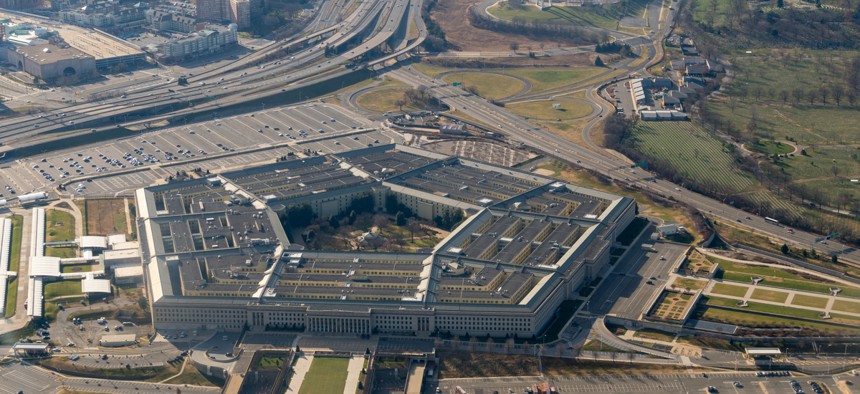Acting Defense Secretary Appoints New Digital Service Director

Austin Nooe/Shutterstock.com
Chris Lynch and his hoodie are leaving the Pentagon.
The founding director of the Pentagon’s digital strike team, the Defense Digital Service, is stepping down to return to the private sector.
Chris Lynch, who started the Defense Department offshoot of the U.S. Digital Service in 2015, is returning to the private sector, effective this week. Brett Goldstein, a professor at the University of Chicago and former chief data officer and commissioner for the Chicago Department of Innovation and Technology, is taking over.
Prior to his time at city hall, Goldstein spent four years as a Chicago police officer, including a stint as the director of predictive analytics group in the Counterterrorism and Intelligence Division.
At the University of Chicago, Goldstein holds positions as the senior adviser for the Pearson Institute for the Study and Resolution of Global Conflicts, senior fellow in urban science at the Harris School of Public Policy and serves as a special adviser to the provost.
Goldstein was recruited directly by acting Defense Secretary Patrick Shanahan, according to the Digital Service, and will report directly to the secretary.
In an announcement early Tuesday, Shanahan thanked Lynch for his service but looked forward to Goldstein’s term at the helm.
“Under the leadership of Chris Lynch, DDS has hacked the bureaucracy to strengthen our national security and improve the lives of service members and their families,” Shanahan said.
“Although we will miss Chris, the unique startup culture he built and the talented team he recruited will continue to disrupt and transform technology at the DOD. We are excited for Brett to be taking on the role of director to build and expand the team and its work. His public and private sector knowledge, technical expertise, and commitment to improving government through technology will be invaluable to a range of critical missions across the department.”
Goldstein is scheduled to take over as director this week.
“Technology has never been more important to the mission of national defense,” he told Nextgov in a statement. “From analyzing data, to strengthening security, to recruiting top talent, we have an opportunity to make a huge impact. We will be growing efforts to solve critical tech issues within the DOD to improve services for civilians and service members and the country as a whole. I'm excited to lead this talented team of women and men who want to make a difference and help protect our nation.”
A Digital Service spokesperson said they don't know Lynch's plans, but he will be leaving in the coming weeks. The spokesperson also noted positions at USDS are meant to be temporary, designed to bring in private expertise for one- or two-year stints. Lynch stayed on for more than twice the usual tenure.
Notably, DDS instituted bug bounties at the Pentagon, inviting hackers to find vulnerabilities in IT systems. The idea has since spread to other military branches. In addition, DDS also spearheaded the Pentagon’s Joint Enterprise Defense Infrastructure cloud procurement in its early stages.






